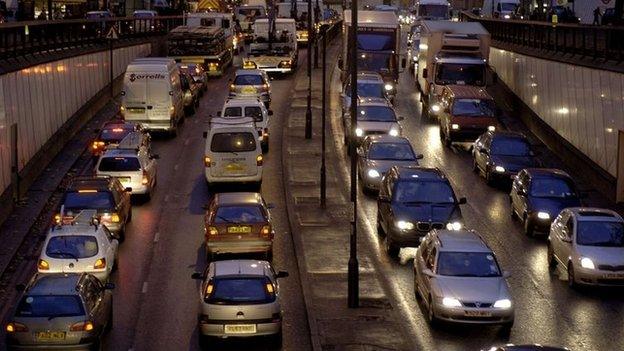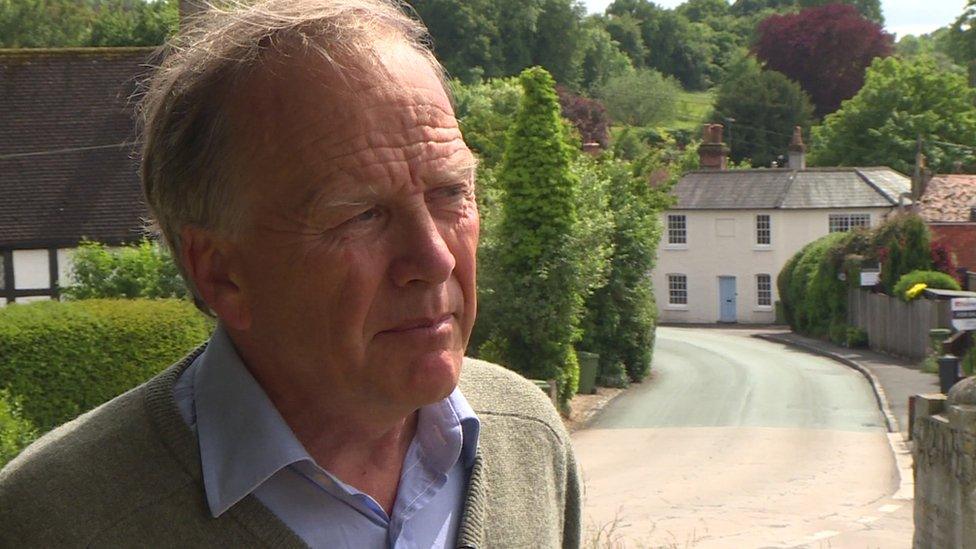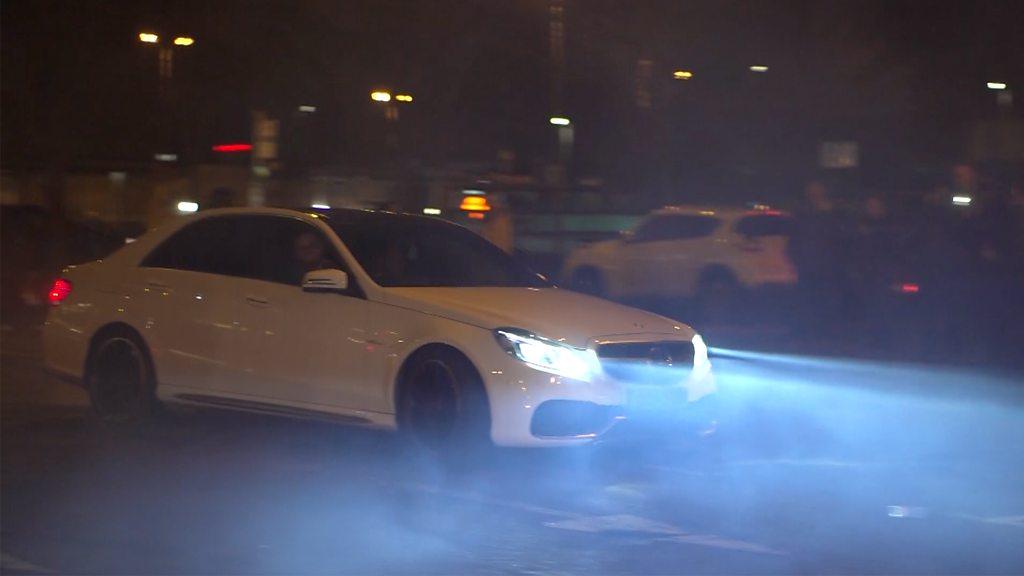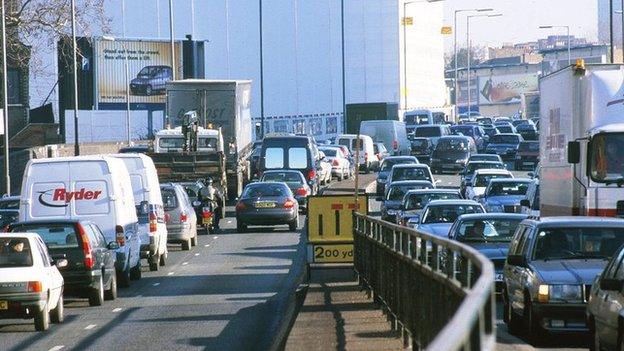'Acoustic cameras' tested in bid to cut noisy vehicles
- Published

The government said it was concerned by the potential health impacts of noise pollution
Motorists with vehicles breaching legal noise limits could face fines if new "acoustic camera" technology is developed, the government has said.
The Department for Transport will test noise-detecting cameras in various locations over the next seven months.
The move comes after pressure from campaigners in rural communities who say some motorists illegally modify vehicles to amplify the sound.
A motorcyclist group said bikers must "embrace" the change.
Much like the way a speed camera works, if a microphone in an acoustic camera detects a vehicle breaching legal noise limits, it triggers a camera to take pictures of the vehicle registration number and any other relevant images to allow a fine to be sent out to the vehicle owner, the government said.
The noise level deemed to be inappropriate is yet to be decided.

Dr Jonathan Moore said he was not entirely convinced the devices could be effective in rural communities
All vehicles must comply with noise regulations to legally use the roads. But Transport Secretary Chris Grayling said the cameras could help to combat the fact that police resources are too stretched for officers to easily enforce noise regulations on "boy racers in souped-up vehicles".
"This technology could provide an alternative to make sure those communities are protected against excessive noise, that the people who are acting illegally are prosecuted... it's a simpler, easier way of doing it," he said.
Dr Jonathan Moore, who chairs a campaign group lobbying to reduce noise along the A32 in the South Downs National Park, said people are "thoroughly fed up" with motorcyclists who drive through villages "hundreds of times a year" at anti-social hours.
While he welcomed the trial, he said he does not believe technology is advanced enough for acoustic cameras to prevent noise problems in rural areas.
"Where there are wide open spaces, I am not entirely sure that this will be effective," he said.
Meanwhile, the Motorcycle Industry Association said cameras could reduce nuisance noise if they were used in the right way.
Chief executive Tony Campbell said: "Motorcycle manufacturers accept that they have a role to play and I think you'll see it more difficult to start tampering with vehicles in the future."
"As an industry we're playing our part," he added.
- Published2 January 2019

- Published24 June 2015
